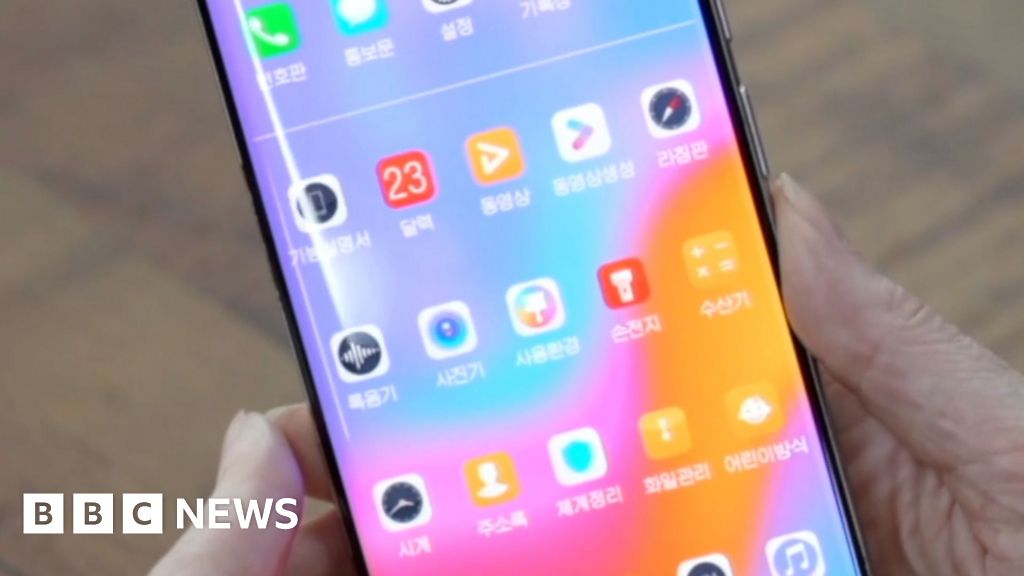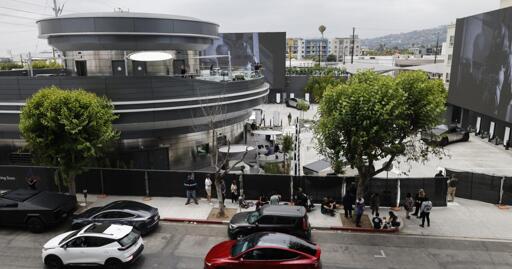In North Korea, your phone secretly takes screenshots every 5 minutes for government surveillance
-
It's a matter of rhetoric a lot of the times with the states. We don't invade countries, we defend democracy. Our government doesn't spy on us, they protect homeland security. Etc etc
Reminds me of that great joke -
::: spoiler A KGB agent and CIA agent meet up in a bar.
"I have to admit, I'm always so impressed by Soviet propaganda. You really know how to get people worked up," the CIA agent says."Thank you," the KGB says. "We do our best but truly, it's nothing compared to American propaganda. Your people believe everything your state media tells them."
The CIA agent drops his drink in shock and disgust. "Thank you friend, but you must be confused... There's no propaganda in America."
:::::: spoiler Over analysis caveat of the joke
Of course it's not state media directly in the states, but the same billionaires who own the state own the media, so it turns out all to be the same thing in the end.
::: -
A smartphone smuggled out of North Korea is offering a rare – and unsettling – glimpse into the extent of control Kim Jong Un's regime exerts over its citizens, down to the very words they type. While the device appears outwardly similar to any modern smartphone, its software reveals a far more oppressive reality.
The phone was featured in a BBC video, which showed it powering on with an animated North Korean flag waving across the screen. While the report did not specify the brand, the design and user interface closely resembled those of a Huawei or Honor device.It's unclear whether these companies officially sell phones in North Korea, but if they do, the devices are likely customized with state-approved software designed to restrict functionality and facilitate government surveillance.
One of the more revealing – and darkly amusing – features was the phone's automatic censorship of words deemed problematic by the state. For instance, when users typed oppa, a South Korean term used to refer to an older brother or a boyfriend, the phone automatically replaced it with comrade. A warning would then appear, admonishing the user that oppa could only refer to an older sibling.
Typing "South Korea" would trigger another change. The phrase was automatically replaced with "puppet state," reflecting the language used in official North Korean rhetoric.
Then came the more unsettling features. The phone silently captured a screenshot every five minutes, storing the images in a hidden folder that users couldn't access. According to the BBC, authorities could later review these images to monitor the user's activity.
The device was smuggled out of North Korea by Daily NK, a Seoul-based media outlet specializing in North Korean affairs. After examining the phone, the BBC confirmed that the censorship mechanisms were deeply embedded in its software. Experts say this technology is designed not only to control information but also to reinforce state messaging at the most personal level.
Smartphone usage has grown in North Korea in recent years, but access remains tightly controlled. Devices cannot connect to the global internet and are subject to intense government surveillance.
The regime has reportedly intensified efforts to eliminate South Korean cultural influence, which it views as subversive. So-called "youth crackdown squads" have been deployed to enforce these rules, frequently stopping young people on the streets to inspect their phones and review text messages for banned language.
Some North Korean escapees have shared that exposure to South Korean dramas or foreign radio broadcasts played a key role in their decision to flee the country. Despite the risks, outside media continues to be smuggled in – often via USB sticks and memory cards hidden in food shipments. Much of this effort is supported by foreign organizations.
Deleted
-
A smartphone smuggled out of North Korea is offering a rare – and unsettling – glimpse into the extent of control Kim Jong Un's regime exerts over its citizens, down to the very words they type. While the device appears outwardly similar to any modern smartphone, its software reveals a far more oppressive reality.
The phone was featured in a BBC video, which showed it powering on with an animated North Korean flag waving across the screen. While the report did not specify the brand, the design and user interface closely resembled those of a Huawei or Honor device.It's unclear whether these companies officially sell phones in North Korea, but if they do, the devices are likely customized with state-approved software designed to restrict functionality and facilitate government surveillance.
One of the more revealing – and darkly amusing – features was the phone's automatic censorship of words deemed problematic by the state. For instance, when users typed oppa, a South Korean term used to refer to an older brother or a boyfriend, the phone automatically replaced it with comrade. A warning would then appear, admonishing the user that oppa could only refer to an older sibling.
Typing "South Korea" would trigger another change. The phrase was automatically replaced with "puppet state," reflecting the language used in official North Korean rhetoric.
Then came the more unsettling features. The phone silently captured a screenshot every five minutes, storing the images in a hidden folder that users couldn't access. According to the BBC, authorities could later review these images to monitor the user's activity.
The device was smuggled out of North Korea by Daily NK, a Seoul-based media outlet specializing in North Korean affairs. After examining the phone, the BBC confirmed that the censorship mechanisms were deeply embedded in its software. Experts say this technology is designed not only to control information but also to reinforce state messaging at the most personal level.
Smartphone usage has grown in North Korea in recent years, but access remains tightly controlled. Devices cannot connect to the global internet and are subject to intense government surveillance.
The regime has reportedly intensified efforts to eliminate South Korean cultural influence, which it views as subversive. So-called "youth crackdown squads" have been deployed to enforce these rules, frequently stopping young people on the streets to inspect their phones and review text messages for banned language.
Some North Korean escapees have shared that exposure to South Korean dramas or foreign radio broadcasts played a key role in their decision to flee the country. Despite the risks, outside media continues to be smuggled in – often via USB sticks and memory cards hidden in food shipments. Much of this effort is supported by foreign organizations.
not a very good secret.
-
Don't give western companies any funny ideas.
[Removed by Reddit]
-
I think that's the link to the video?
Seems like it's part of a longer video...Edit:
Hhmmm here is a slightly longer video that doesn't really add anythingActual edit:
I genuinely couldn't find a better source video
-
Think of all the pics they have of people sitting on the toilet.
From... screenshots?
-

Murena - deGoogled and privacy by design smartphones and cloud services.
Escape the digital surveillance now. We combine privacy by design smartphones with safe and transparent online services.

Murena - deGoogled phones and services (murena.com)
I feel like that's a honeypot, kinda like that time feds made a phone to spy on cartels.
-
I'm glad these exists, but remember that these only work as long as device manufacturers don't lock the bootloaders.
Your country's government could pass a law that requires bootloaders to be locked for "national security" reasons, and there'd probably not be much resistance since most people don't even use custom roms. (Looking at you, USA and the autocratization)
Then i guess i won't have a phone anymore

-
[Removed by Reddit]
Thought this was real at first

-
A smartphone smuggled out of North Korea is offering a rare – and unsettling – glimpse into the extent of control Kim Jong Un's regime exerts over its citizens, down to the very words they type. While the device appears outwardly similar to any modern smartphone, its software reveals a far more oppressive reality.
The phone was featured in a BBC video, which showed it powering on with an animated North Korean flag waving across the screen. While the report did not specify the brand, the design and user interface closely resembled those of a Huawei or Honor device.It's unclear whether these companies officially sell phones in North Korea, but if they do, the devices are likely customized with state-approved software designed to restrict functionality and facilitate government surveillance.
One of the more revealing – and darkly amusing – features was the phone's automatic censorship of words deemed problematic by the state. For instance, when users typed oppa, a South Korean term used to refer to an older brother or a boyfriend, the phone automatically replaced it with comrade. A warning would then appear, admonishing the user that oppa could only refer to an older sibling.
Typing "South Korea" would trigger another change. The phrase was automatically replaced with "puppet state," reflecting the language used in official North Korean rhetoric.
Then came the more unsettling features. The phone silently captured a screenshot every five minutes, storing the images in a hidden folder that users couldn't access. According to the BBC, authorities could later review these images to monitor the user's activity.
The device was smuggled out of North Korea by Daily NK, a Seoul-based media outlet specializing in North Korean affairs. After examining the phone, the BBC confirmed that the censorship mechanisms were deeply embedded in its software. Experts say this technology is designed not only to control information but also to reinforce state messaging at the most personal level.
Smartphone usage has grown in North Korea in recent years, but access remains tightly controlled. Devices cannot connect to the global internet and are subject to intense government surveillance.
The regime has reportedly intensified efforts to eliminate South Korean cultural influence, which it views as subversive. So-called "youth crackdown squads" have been deployed to enforce these rules, frequently stopping young people on the streets to inspect their phones and review text messages for banned language.
Some North Korean escapees have shared that exposure to South Korean dramas or foreign radio broadcasts played a key role in their decision to flee the country. Despite the risks, outside media continues to be smuggled in – often via USB sticks and memory cards hidden in food shipments. Much of this effort is supported by foreign organizations.
Microsoft Recall: Amateurs!
-
Oh yeah, have there been reports on this ?
(Not trying to shut you down, I'm genuinely curious)
Yeah, there have been various leaks over the years that trickle out. Supposedly they’ve banned companies from operating in the US for refusal to comply with backdoor demands (Hawei, Kaspersky), some reports of backdoors built right into both Intel & AMD processors, some vague stuff that’s come out about backdoors in Windows, etc. Even when the companies refuse to comply, there’s been reports of US intelligence going into factories or intercepting deliveries to install spy chips into hardware. I recall there was a local ISP provider somewhere in the mid-west that got shut down for refusing to install spy devices in their facilities.
Really a lot of this was confirmed as far back as Snowden. And plenty of whistleblowers and leaks since.
-
Yeah, there is no reason for me to be connecting my TV to the internet. I use a HTPC which is much better for streaming than the TV's built-in apps.
The one time I do connect the TV to the internet is when there's a firmware update that fixes an issue I'm encountering. That's rare though.
I still have it on my network so I can control it using Home Assistant (eg have a backlight come on and dim the main lights when the TV is turned on) but it's on an isolated VLAN.
-
Out of over 17,000 Android apps examined, more than 9,000 had potential permissions to take screenshots. And a number of apps were found to actively be doing so, taking screenshots and sending them to third-party sources.
this is a weird paragraph. no permission is needed for an app to take screenshots of itself. all apps can do that.
just an example: the Element matrix client has a bugreport feature that allows you to submit an automatically created screenshot of the previous menu.
it seems there are several ways to accomplish this: https://stackoverflow.com/questions/2661536/how-to-programmatically-take-a-screenshot-on-android
Do those code snippets on the Stackoverflow post allow you to capture the entire screen regardless of which app is open, or do they only allow you to capture the app the code is running in?
Capturing the app itself makes sense (for things like bug reports) but does Android really let any app capture whatever is on the screen?
-
LOL removed
This madlad frequently responds to his own moderated comments. I've officially become a follower, it's like watching a train wreck. He's just so fragile.
-
Ah, lol.
Is that the web interface? Or what app is that? -
Ah, lol.
Is that the web interface? Or what app is that?Voyager from F-Droid
-
Voyager from F-Droid
[Welcome to the Fundamentals of Project Planning and Management Students course! The discussion forum is great for sharing ideas and clearing doubts. Joining the live Zoom meetings adds value by offering real-time interaction and deeper understanding of the course.
CLICK AND JOIN THE CLASS ](https://chat.whatsapp.com/Cn1MPEfP0T44YU9n1EWxZG
) -
Voyager from F-Droid
[Welcome to the Fundamentals of Project Planning and Management Students course! The discussion forum is great for sharing ideas and clearing doubts. Joining the live Zoom meetings adds value by offering real-time interaction and deeper understanding of the course.
CLICK AND JOIN THE CLASS ](https://chat.whatsapp.com/Cn1MPEfP0T44YU9n1EWxZG
) -
Deleted
Yeah, but at least it's our corporate overlords and not the government!!
/s
-
Yeah, but at least it's our corporate overlords and not the government!!
/s
Unless the government wants to buy the data in which case it's just good capitalism




